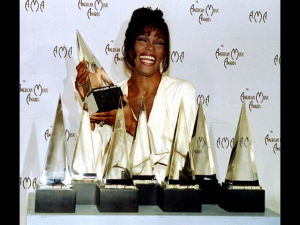The Evolution of P!nk’s Musical Style: From Pop Princess to Empowerment Icon
Since bursting onto the music scene in 2000, P!nk has dazzled audiences with her edgy style, powerful vocals, and an empowering brand of pop that has consistently challenged societal norms and reshaped musical landscapes. As she continues to evolve, her trajectory from a pop star to a multifaceted artist with a rebellious spirit is nothing short of inspiring. Let’s take a closer look at the evolution of P!nk’s musical style—from her debut album to her present-day artistry.
The Early Days: "Can't Take Me Home" (2000)
P!nk, born Alecia Beth Moore, made her debut with "Can't Take Me Home," a record that showcased her roots in R&B and pop. Featuring chart-topping singles like "There You Go" and "Most Girls," P!nk introduced herself with a catchy, sassy approach that set the stage for her future evolution. Despite the album's commercial success, critics noted that her sound was fairly conventional for late '90s pop, a trajectory that would soon change drastically.
Challenging Norms: "Missundaztood" (2001)
P!nk’s sophomore album, "Missundaztood," marked a turning point in her career. With a more aggressive sound infused with rock and pop influences, the album included anthems like "Get the Party Started" and "Just Like a Pill." This era showcased her rebellious spirit—breaking away from the stereotypical pop mold. The fusion of different genres allowed P!nk to carve out a unique niche for herself and connect deeply with fans who admired her authenticity.
The Rebellion Continuum: "Try This" (2003)
In "Try This," P!nk leaned further into rock elements, collaborating with hit-makers like Linda Perry. Tracks like "Trouble" and "God Is a DJ" solidified her status as a powerhouse vocalist capable of delivering gritty, raw performances. Delving deeper into personal themes, P!nk offered a glimpse into her struggles and triumphs, and it all resonated with her growing fanbase.
Ballad-Breakthrough: "I’m Not Dead" (2006)
With "I’m Not Dead," P!nk brilliantly mixed irreverence and introspection, highlighting her ability to craft poignant ballads alongside her usual spunk. "Who Knew" became a heartfelt tribute, showcasing her emotive delivery and multifaceted artistry. This album demonstrated her growth as a lyricist, as she tackled complex themes of love and loss while maintaining her signature edge.
The Empowerment Era: "Funhouse" (2008)
P!nk's "Funhouse" succinctly encapsulated her evolution into an empowerment icon. Tracks like "So What" and "Sober" were both personal and anthemic, asserting P!nk's independence after a tumultuous breakup. This album solidified her role not just as a pop sensation but as a voice for those seeking strength and resilience in their own narratives. “Funhouse” also embraced a more polished sound, appealing to a broader demographic while maintaining her raw energy and fire.
A Journey of Self-Discovery: "The Truth About Love" (2012)
"The Truth About Love" marked a pivotal moment in P!nk’s career, exploring the complexities of love and relationships. The hit lead single, "Blow Me (One Last Kiss)," was a declaration of independence, reinforcing her narrative of self-empowerment. The album was diverse in sound, effectively blending pop, rock, and even elements of hip-hop, showcasing P!nk's versatility and adaptability as an artist.
Reinvention and Revival: "Beautiful Trauma" (2017)
After a brief hiatus, P!nk returned with "Beautiful Trauma," which continued to trace her evolution while marrying her past influences with contemporary sounds. The title track and "What About Us" resonated with fans, highlighting social issues while maintaining P!nk's signature blend of vulnerability and strength. The album solidified her status as not just a pop icon, but a cultural force.
Empowerment, Love, and Growth: "Hurts 2B Human" (2019)
With "Hurts 2B Human," P!nk took her storytelling to new heights, emphasizing the struggles of mental health and self-acceptance. Featuring a collaboration with Khalid in the emotionally poignant “Hurts 2B Human,” she showcased her ability to connect on deeper, more personal levels. This era revealed P!nk's commitment to being a voice for the voiceless and an advocate for mental health awareness, solidifying her status as a relatable and empowering figure in the music industry.
The Future of P!nk: Current Projects and Aspirations
Currently, P!nk continues to push boundaries while focusing on creativity and innovation. Her recent single “Never Gonna Not Dance Again” reaffirms her commitment to infusing joy and positivity into her music, even in tough times. P!nk remains a fearless performer, known for her high-energy stage presence and aerial acrobatics, now as much a part of her brand as her iconic vocal prowess.
Conclusion
From her debut as a pop star to her emergence as a feminist icon and vocal advocate for change, P!nk's musical style has evolved tremendously over the years. Her journey reflects resilience, authenticity, and a rejection of the status quo, serving as an inspiration for countless fans around the globe. As she continues to evolve and adapt in the ever-changing music landscape, one thing remains clear: P!nk's voice will always resonate with those seeking empowerment, freedom, and a fierce spirit. Whether straddling pop, rock, or ballads, she's proven time and again that she knows how to create music that connects deeply with the human experience. The best is yet to come!

